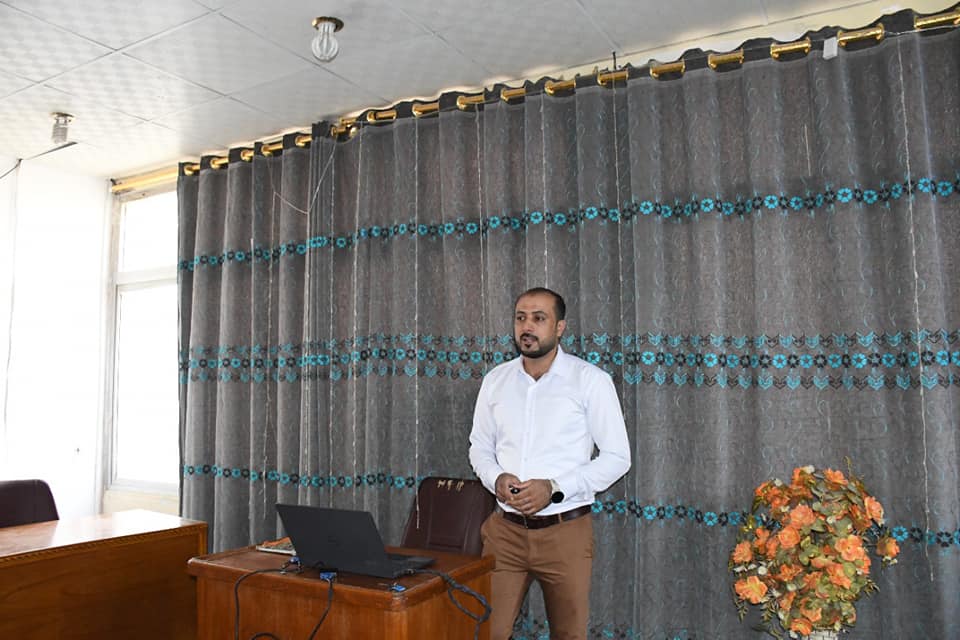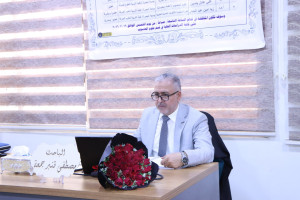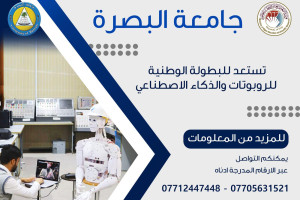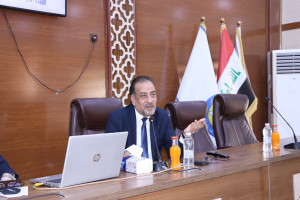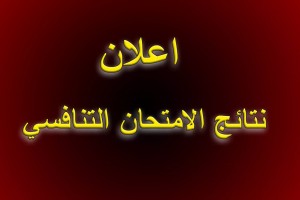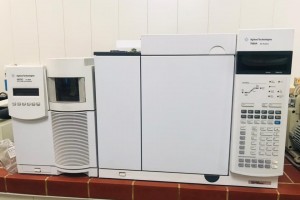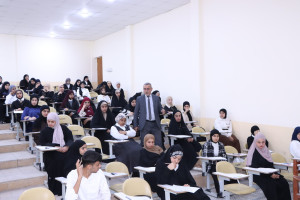
The College of Education for Pure Sciences at the University of Basrah organized a scientific lecture on a diagnostic study of the genus Myocysts isolated from domestic sheep and goats in the city of Basrah and the role of some secondary metabolites extracted from Ruppia sp. in her treatment
The lecture presented by the researcher (Alaa Ismail Saud) included
The first part included a study of the prevalence, morphological and histological characterization and molecular properties of polycystic leukemia.
The second part included a study of the spread and morphological and molecular studies of monocotyledonous plants
(monocot plants of R. maritima) in Basrah city, where there were no previous studies in Iraq about this type of monocotyledonous plants. It is the first study in Iraq that included morphological and molecular studies to identify the aquatic plant R. maritima.
As for the third part, it included infection of laboratory mice and chicks with S.moulei parasite, and treatment of infection in vivo with alkaloids extracted from aquatic plants R.maritima. This study reported the first infection of laboratory mice and chickens with the parasite S.moulei in Iraq. Three concentrations of the alkaloid extract of R. maritima were used in this study, two of them had activity against S.moulei cyst. The results showed that the concentrations (0.156 and 0.206 mg/kg) of the alkaloid extract affected the activity of Bradyzoites inside The bodies of mice, as well as chickens, made a full recovery after being treated with this alkaloid extract.
It is noteworthy that this study is the first documenting the antiparasitic effect of R. maritima aqueous plant extract against S. moulei in laboratory mice and chickens in Iraq.
Objective of the lecture
The current is the use of molecular and other diagnostic methods to look at the spread of Sarcocystis spp.) in Basrah city in the early stages of infection and the use of alkaline extract from aquatic plants (R.maritima), for its treatment, where the study included several parts.
